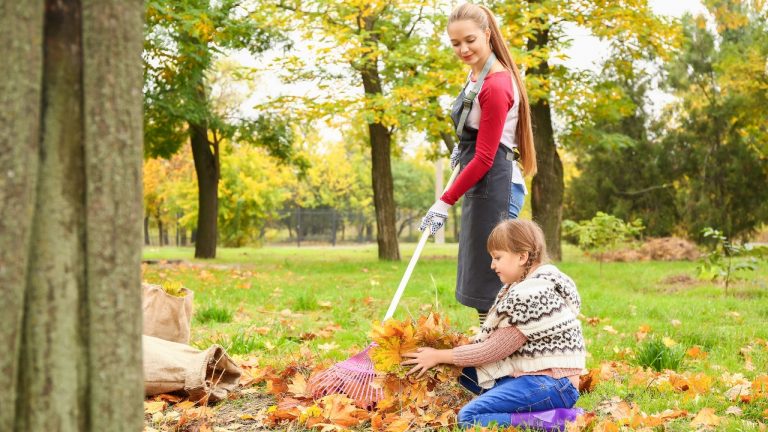As the vibrant colours of fall fade and cottage country prepare for winter, it’s time to rethink how we approach garden clean-ups. Gone are the days when the goal was to leave your garden spotless, with every leaf raked and every stem trimmed. In Muskoka and Parry Sound, where nature is part of the charm, embracing an eco-friendly approach to garden care benefits your property and the local ecosystem.
Leave the Garden “Messy” for Nature’s Sake
For many, leaving their garden a bit untidy may seem counterintuitive. However, letting plants like Echinacea and Rudbeckia stand through the winter provides valuable food for local bird populations. The dried flowers and seed heads also create a more exciting winter landscape, enhancing the natural beauty of your property. Imagine the snow delicately covering your hydrangeas—a scene that embodies Muskoka’s winter charm.
But beyond aesthetics, allowing plant matter to remain in your garden plays a crucial role in soil health. Fallen leaves act as a natural mulch, helping regulate soil temperature and retaining moisture. As they break down, they release essential nutrients into the soil, enriching it for the next growing season. Beneficial microorganisms, insects, and even small animals find shelter in these leaves, contributing to the garden’s overall biodiversity. This simple, natural process is a gift to your garden and the wildlife thriving in Muskoka’s unique environment.
What to Trim and What to Keep
While many plants should be left standing, some—like hostas and—can be cut back as they tend to break down after the first frost. Diseased plants, however, should be removed from your garden to prevent the spread of disease.
Leaving plant stems in place also protects Muskoka’s unpredictable winter weather. The stems help trap snow, which acts as a natural insulating blanket for your plants, preventing frost heaving that could damage their roots. By contrast, bare soil is more exposed to the elements, which can lead to winter plant loss.
Mulching Leaves for a Healthier Lawn and Garden
While you don’t want a thick blanket of leaves on your lawn, mulching them with a mower can provide rich nutrients to your grass and garden beds. This sustainable practice keeps leaves out of the landfill while giving back to your landscape. You can use the mower to shoot excess leaves into your garden beds, where they’ll break down and nourish the soil throughout the winter.
Tool Maintenance for Sustainable Gardening
Eco-friendly garden practices also extend to how you care for your tools. Before putting them away for the season, clean and oil your rakes, hoes, and shovels. High-quality secateurs can be taken apart, sharpened, and oiled to ensure they’re ready for next year’s gardening tasks. Well-maintained tools last longer, reducing the need for replacements and minimizing waste.
Less Work, More Benefits
By following these simple, eco-friendly practices, you will reduce the time spent on fall clean-up, lower your carbon footprint, and improve the health of your garden. It’s a win-win: less work for you and a thriving, sustainable environment for your property and the surrounding area.
At the heart of Muskoka and Parry Sound’s appeal is the natural beauty that surrounds us. By working with nature rather than against it, we can all contribute to keeping this region as stunning as ever.
Are you ready to embrace a more eco-friendly approach to your fall garden clean-up this year? What steps are you taking to help your cottage property thrive through the winter? Let us know in the comments below. ⬇️

